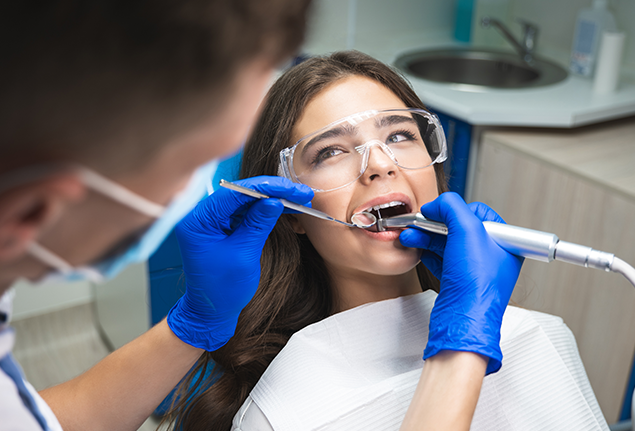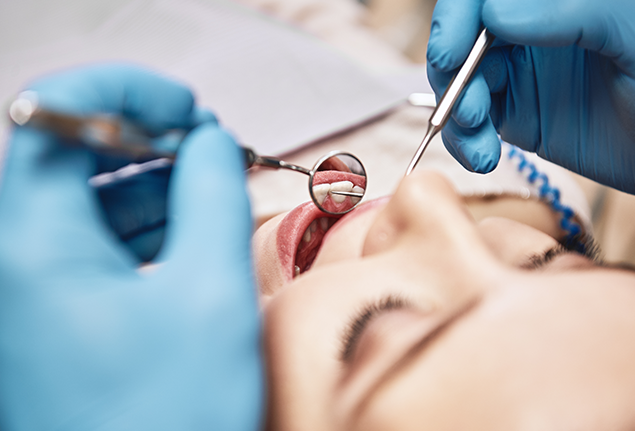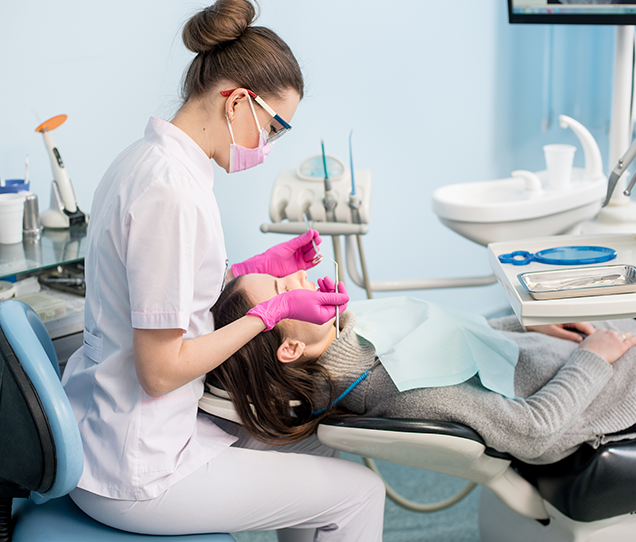
A tooth abscess occurs when bacteria enter the spaces around the tooth and cause pus. This condition mostly affects the tip of the tooth’s root (periapical abscess), but the abscess may also affect the gums beside the tooth’s root (periodontal abscess).
Periapical abscess mostly results from an untreated cavity, tooth injury or previous dental work. If you have an abscess, your treatment at Thousand Smiles may involve draining the pus and removing the infection.
Periapical abscess mostly results from an untreated cavity, tooth injury or previous dental work. If you have an abscess, your treatment at Thousand Smiles may involve draining the pus and removing the infection.

Ensure you visit the dentist immediately after you begin to experience the symptoms of an abscess. You can visit the emergency room or your dentist if you have a fever, breathing or swallowing difficulty and a swollen face. This may result from a disease from other parts of the body.
A periapical abscess occurs when bacteria enter the core of the tooth containing the nerves, blood vessels and connective tissues (pulp). The bacteria may enter the tooth through a crack or chip in the dental cavity, and it can spread to the tooth root. An inflamed and swollen root top may result from the infection.
If you don’t floss and brush your teeth regularly, you can develop tooth decay, abscess, gum disease and other oral complications.
Excessive intake of sugary foods and drinks can cause tooth abscesses and cavities.
Regardless of the cause of the dry mouth, such as a side effect of certain medications or age, it increases your risk of tooth decay.
The tooth abscess doesn’t clear without treatment. Usually, ruptured access causes less pain, but you still need oral care. The infection may spread to the head and neck if the abscess isn’t drained. Over time, sepsis, a life-threatening infection, may occur.
Untreated tooth abscesses and an impaired immune system increase your risk of the infection spreading.

You can reduce your risk of a tooth abscess and stop tooth decay by the following.
The dentist will examine your teeth and the surrounding areas. Our dentist may also:

Your dentist may perform the following procedures to remove the infection.
Your dentist will make a small cut into the abscess and drain it, then wash the area with saltwater.
This procedure helps to save the tooth and remove the infection.
After pulling out the infected tooth, the dentist will drain the abscess and treat the infection.
Taking antibiotics will prevent the spread of the infection to other body parts and strengthen your immune system.

The following are things to do while preparing for your appointment
We will also ask several questions about your symptoms and if you’ve had teeth trauma.
If you experience any symptoms of a tooth abscess or suspect an infection in your mouth, visit Thousand Smiles or call us on 020 8050 0280 to book an appointment with our dentist.